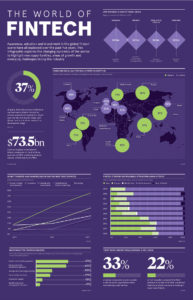Market Action
Global equities were stronger on the week while the yield on the US 10-year Treasury note dropped two basis points to 1.57%. The price of a barrel of West Texas Intermediate crude oil increased to $52.00 from $50.65 last week. Volatility, as measured by the Cboe Volatility Index (VIX), declined 1.4 points to 15.5.
On Thursday, officials in Hubei China, the center of the coronavirus outbreak, amended the criteria for diagnosing the coronavirus strain which has been named Covid-19. As a result, the number of coronavirus cases has surged. As of Friday afternoon, nearly 65,000 have been diagnosed with Covid-19 worldwide and 1,383 have died from the virus. The People’s Bank of China is taking fiscal and monetary measures to cushion the economic blow from the outbreak. Economists speculate a severe but temporary reduction in Chinese economic growth. Though the outbreak initially rattled global markets, fears are subsiding especially among equity investors who are pushing world stocks back up to record highs.
United Kingdom (UK) Chancellor of the Exchequer Sajid Javid resigned this week prompting Prime Minister Boris Johnson to replace him with Rishi Sunak. According to news reports, Javid did not approve of Johnson’s fiscal stimulus plans. This reshuffling of the cabinet more strongly aligns the Treasury with the UK’s government.
Ireland’s dominant political parties, Fine Gael and Fianna Fail, found themselves in second and third place, respectively, behind Nationalist party Sinn Fein in last week’s general election. The results of the election have significantly reshuffled power in Ireland. Political observers are expecting the process of forming a coalition to take weeks or even months.
The US Senate passed a resolution to require President Donald Trump to seek congressional approval before taking military action against Iran. However, the vote fell short of the two-thirds majority needed to override the presidential veto the White House has threatened.
Despite peace negotiation efforts made by the US in a meeting with the Taliban in Doha, Qatar this week, clashes between Afghan government forces and the Taliban continue. However, Defense Secretary Mark Esper said a week-long reduction in violence has been negotiated but not approved by all parties involved. Afghan, Taliban, and US sources have said a peace deal could be signed this month, allowing the withdrawal of 13,000 US troops and thousands of NATO personnel.
What Could Affect the Markets in the Days and Weeks Ahead
Many companies with offices and factories in China extended the Lunar New Year holiday, keeping their doors closed due to the coronavirus outbreak. This has begun to affect global supply chains, furthering burdening China’s economy during this crisis. However, companies such as Mattel Inc. and Nissan announced they are planning on reopening their China factories on Monday.
The International Energy Agency predicts the first decline in global crude oil demand in a decade will happen this quarter as a result of the economic impact from the coronavirus.
Berkshire Hathaway, Warren Buffet’s conglomerate, releases its fourth-quarter earnings results on February 22nd. The multinational company is expected to report record profits. Investors are most interested in where the money is coming from since the 90 businesses the company owns are a broad representation of the US economy. If the company’s earnings are driven by its manufacturing and insurance divisions, it could be a sign that the US economy is still expanding at a healthy pace.

